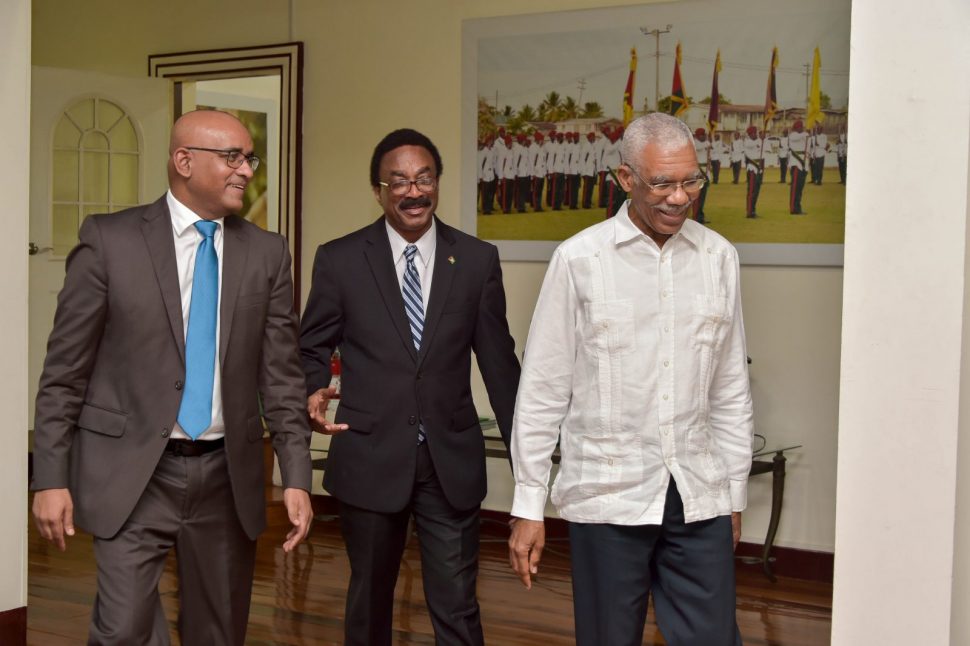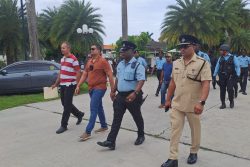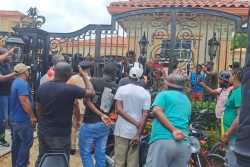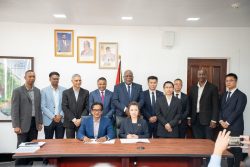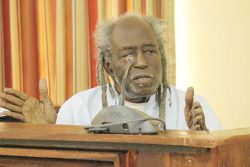Government can easily find money to meet the demands of teachers, according to Opposition Leader Bharrat Jagdeo, who said that the discontinuation of the controversial Sussex Street bond contract alone can take care of the entire uniform allowance being asked for with extras.
“I believe there is money to fund a lot of what the teachers have been asking for without increasing overall expenditure in the budget,” Jagdeo, a trained economist and former president, said at a press conference yesterday.
Jagdeo said he was appalled at the current state of negotiations and told President David Granger when he met him yesterday to discuss the appointment of a Commissioner of Police, that he [Granger] should intervene.
“I raised the teachers strike with the President and I said, ‘Mr President, it is absolutely necessary that you get involved in this to resolve the matter.’ It has been quite a while that the teachers have been waiting to get this matter resolved. I think it is in the interest of Guyana that we secure these multi-year contracts, so you don’t have to go through the hassle of negotiation on an annual basis and I believe that there is money to fund a lot of what the teachers have been asking for,” Jagdeo said.
“The teachers asked for an allowance from $8,000 to $25,000. That $170 million that we gave with the taxpayers of this country’s [money] to an individual through a corrupt deal…for what is called a bond, if you divide that by 13,000 teachers you would get $13,076 and can add that to the $8 000 already given, it gives them $21,000 easily. The task force only recommended $16,000 and they are asking for $25 000… so we could give them $21 000 and that $170 million alone take care of the annual clothing allowance funding for all 13,000 teachers. Just terminate one corrupt contract,” Jagdeo reasoned.
Talks on the looming teachers strike ended without resolution on Wednesday as the Guyana Teachers’ Union is pressing for arbitration while the Department of Labour is contending that conciliation between the union and the Education Ministry must be exhausted first. The talks were adjourned, with no resumption date fixed, making it more likely that teachers will be on strike on Monday, the first day of the new school year.
On August 9th of this year, the executive of the GTU was directed by its members to inform the relevant authorities that teachers would be proceeding on strike from the pre-term until further notice as negotiations with a task force set up last year, were futile.
The GTU has said that it is willing to call off the planned strike to back its demand for a 40 per cent increase in salaries if the Education Ministry agrees to arbitration and foregoes the conciliation process. However, the Ministry and the conciliator – the Labour Department of the Ministry of Social Protection – are insisting that the process move forward though conciliation in keeping with “the rules and regulations” of resolving industrial relations issues.
Jagdeo said yesterday that he believes that the President needs to intervene directly as he has been stressing the importance of education and such a move would be demonstrative of his commitment. “I said to him, ‘You have been stressing the importance of education. Now it is time to address the teachers’ concern urgently’,” Jagdeo said.
And with government consistently saying that it has no money to afford pay increases for public servants, Jagdeo said that he took simple calculations to the President to show how the government could save and use the money towards improving the public sector. Using only seven line items from this year’s budget and comparing it with spending in 2014, Jadgeo said that some $5.1 billion could be saved.
Pointing to an increase of $434 million on spending for national events from $477 million in 2014 to $911 million in 2018, Jagdeo noted that similar sums could be saved on purchasing of spare parts and servicing vehicles. That sum, he said, went up from $853.8 million in 2014 to $1.3 billion in 2018 and this did not include any vehicle purchases. Rentals of buildings by government went up from $795 million in 2014 to $1.3 billion in 2018. Travel by government officials also saw significant increases for both international and local travel expenses. Under line item 6265-Other Transport and postages, the sum climbed from $874.6 million to $1.3 billion while local travel and subsistence moved from $1.4 billion to $2.1 billion.
Jagdeo said he wants the president have the relevant finance personnel go over the figures, crunch them and they will see that there are ways to cut back and channel those monies into areas that need them more. “Of course they can find it,” Jagdeo said. !
